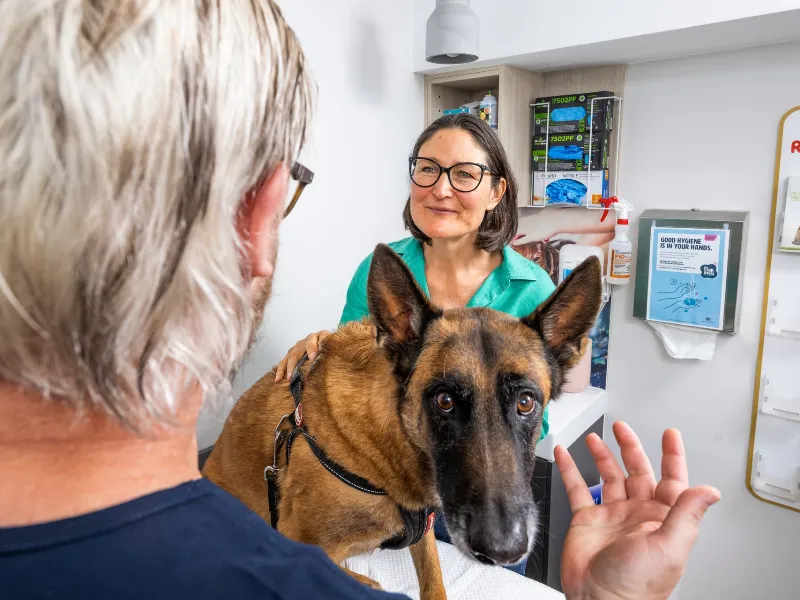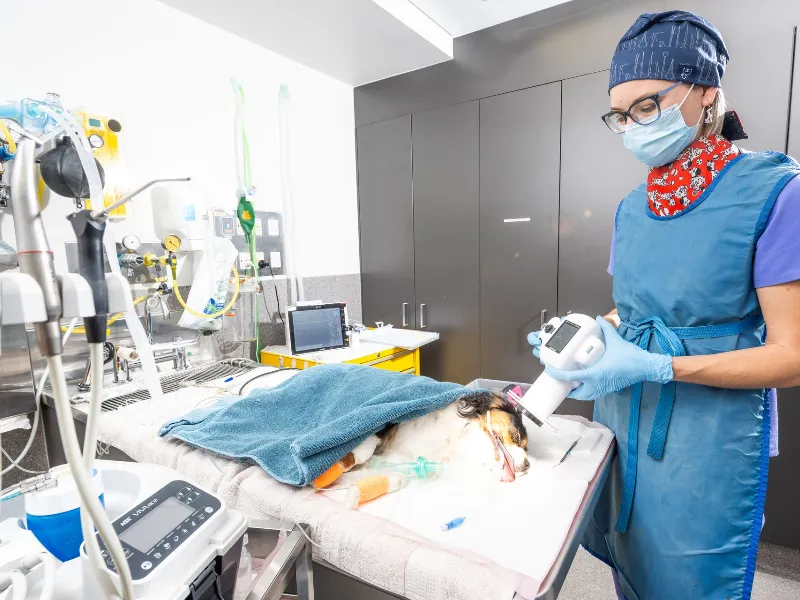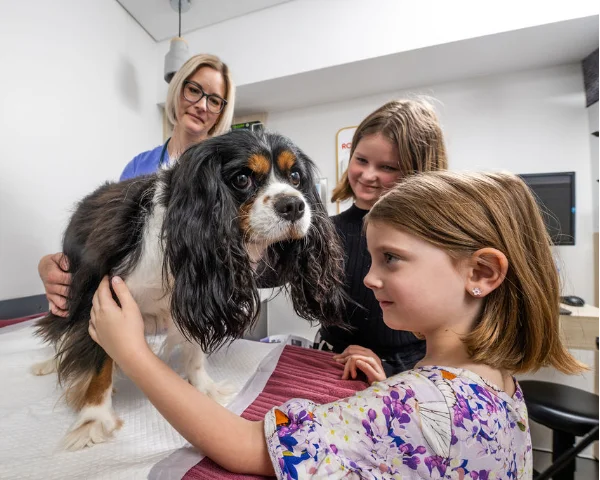Removing complex teeth safely and with minimal impact.

Before the procedure
We strive to make your pet’s visit as smooth and stress-free as possible.
Here’s what you need to know before the appointment:
- Referral: Please visit your regular vet for a referral and any necessary pre-anaesthetic checks, including blood tests to ensure we can proceed with treatment on the day if you choose to do so.
- Fasting: Ensure your pet does not eat after midnight the night before the consultation. Access to water is still permitted.
- Medication: Please discuss your pet’s medication when booking for case-specific advice.

What we do during the procedure
We look forward to seeing you and your pet at one of our locations. Here’s what will happen:
- Arrival: We will examine your pet, discuss your concerns, and explain our findings and treatment plans. We pride ourselves on open, clear communication with pet owners, ensuring you feel informed and confident about every aspect of your pet’s care.
- Same-Day Treatment: For many patients, specialist treatments can be performed on the same day. We’ll outline the day’s plan and prepare for your pet’s return home. Most pets will be discharged that afternoon, while some advanced treatments require an overnight stay to aid recovery.

After the procedure
Here is what to expect following your pet’s procedure:
- Post-Anaesthesia: Your pet may be quiet and sleepy. Older pets may take longer to recover.
- Pain Relief: Your pet will receive pain relief during the procedure. Follow instructions for any additional medication.
- Diet: Soft food is not usually necessary. We recommend dry food, diced prime 100 dog roll or chunks of meat for five days post-procedure to prevent wound issues.
- Normal Reactions: Some facial swelling, bloody saliva and darker stools are normal as your pet heals.
- Concerns: Contact us during business hours or your regular vet for any concerns. For urgent issues overnight, reach out to your closest 24-hour emergency centre.













